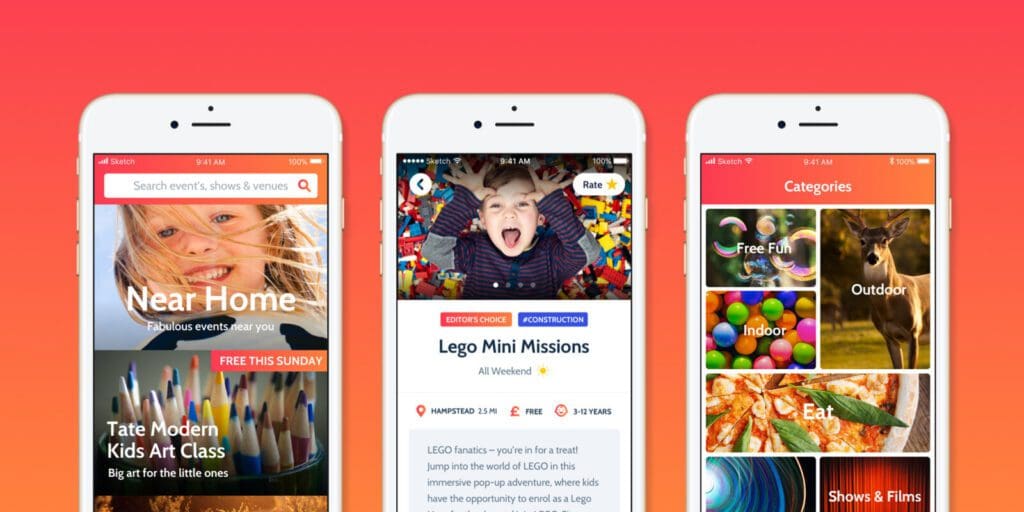Name: Hannah Feldman
Position: Co-Founder
Company: Kidadl
Industry: Online leisure & Education
How did you get into tech?
When I realised that the problem I wanted to solve for parents and families needed a technology-based solution. I’d spent the previous 16 years working in a range of corporate roles across law, banking and corporate finance and tech had been an enabler when doing my job, but not the essence of my job.
It wasn’t until I met my co-founder Sophie and we discussed building a product that could match families with the right resources and events, tailored to the ages and interests of their kids that I threw myself head first into the tech industry and into building a consumer tech platform from the ground up.
What is it about tech that you love?
The endless potential for innovation and creativity and the ability to serve our users with better, more relevant, and intuitive solutions to help make their lives easier. I also love the speed that things can move at (compared to corporate life) and the amazing characters and collaborators in the industry who we’ve had the pleasure to work with on our journey so far.
What’s been your career highlight so far?
Seeing the first emails and reviews that flooded in from our users (we call them Kidadlers) when Kidadl launched, and the genuine joy and excitement that came from parents who found the very product that we had created to be such a useful tool in their daily lives. Nothing can ever beat this feeling!

What challenges have you faced as a Female Founder?
Learning to understand that women are severely underrepresented in technology. Although the numbers make that super clear (with an average of 1% of female founded teams receiving venture funding in the UK), you also must adapt to the reality of what that means when approaching the fundraising process and beyond.
For example – I have been asked in more investment meetings than I care to remember “who looks after your kids” and “can you cope with the pressure that building this business will put on your home life?” which I doubt many men would be asked about.
What tangible advice/guidance would you give to aspiring Female Founders?
That building a company is a marathon not a sprint and you need to really pull on (and develop) your inner strength and resilience to bring your vision to reality. You also need to learn to accept that every “no” – whether from a potential funder or commercial partner – brings you closer to a yes, and that there will be problems to solve every day, regardless of the stage your business is at. Once you accept that building a business is the least linear yet most creative, exhilarating and joyful journey you will go on, you can start to accept the bumps along the way and really enjoy the ride.
What does career success look like to you?
Building a product that enhances the lives of millions of families across the globe, and that encourages children to open their eyes and minds to the possibilities awaiting them. And doing this in conjunction with raising my 3 children, and attending to their ever-changing needs and interests.
Which other women in tech should our readers be following?
Kendal Parmar, Co-Founder & CEO at Untapped AI
Felicia Meyerowitz Singh, Founder & CEO at Akoni
Kim Palmer, Founder of Clementine App
Lucinda Kelly, Founder & CEO at Popertee
Liane Dabbous, Co-Founder & CEO at MAMA Codes

Do you find that non-technical skills are ever helpful in your role? If so, how?
As co-founder of a consumer platform designed to put families first, my role involves a large variety of non-technical skills, especially in regard to market research and consumer insight, editorial and content and to building the Kidadl brand. I worked for 16 years across the corporate world before founding Kidadl and I’ve found that skills gleaned from across law, banking and media during this time have been super transferable and relevant to me in this journey.
Do you have any advice for women in tech on the importance of a network and how to build it?
Networking is a great way to build your profile and the profile of your business across the tech ecosystem.
- The best way to start is by showing up at relevant events for your niche/proposed niche e.g. EdTech or for your stage e.g. Seed so you will meet contacts who have a mutual or overlapping interest.
- Meetup.com is a helpful way to find out what’s going on.
- Industry publications and newsletters tend to offer a more curated view of what might be worth attending in your niche – try Femstreet and Elpha.
- Once you show up at an event remember that to build a network you need to …network! Look at every person in the room as a learning opportunity where you can either help them or they can help you and initiate conversations with a dollop of humour and humility – you never know where they might lead.
- Always follow up! It’s a key step that can often be missed.
Any tools, resources, organisations that are useful and helpful?
There are some fantastic platforms like Ada’s List, Elpha and 50inTech along with the Femstreet Newsletter and useful resources like Sifted that focus on the wider tech industry. I also follow investors like Check Warner and June Angelides who are passionate advocates for diversity in technology.
What would you tell your younger, more junior self – with hindsight?
That you don’t need to have a plan that encompasses everything when you’re setting out. The joy really is in the journey and the beauty is in seeing the pathways that open up to you as you’re going along, often from directions you wouldn’t expect.
I always knew I wanted to build a business, but it took 16 years in the corporate world before the right one came along – so don’t be too tough on yourself!








